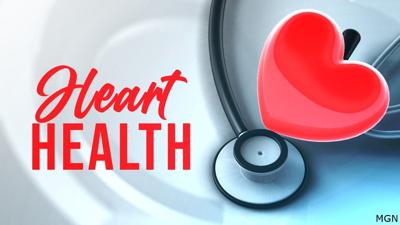
HEART DISEASE: Heart disease is the leading cause of death for most people and kills someone every 33 seconds in the United States. Heart disease includes diseases in blood vessels, heart muscles, and heart valves, as well as arrhythmia and congenital heart defects. Each type has different symptoms. The symptoms of blood vessel disease are chest pain, shortness of breath, pain or numbness in limbs, and pain in the upper body (jaw, neck, back, and upper belly). The symptoms of heart muscle and heart valve disease are dizziness, fainting, fatigue, shortness of breath, irregular heartbeat, and swollen legs, ankles, and/or feet. The symptoms of arrhythmia are fainting, chest pain, dizziness, shortness of breath, and a racing or slow heartbeat. Finally, the symptoms of congenital heart defects are cyanosis (pale gray or blue lips), shortness of breath, and swelling in the legs, belly, and/or eyes. Risks of heart disease include excessive alcohol use, obesity, physical inactivity, unhealthy eating, and diabetes.
(Sources: https://www.cdc.gov/heart-disease/data-research/facts-stats/index.html
https://www.mayoclinic.org/diseases-conditions/heart-disease/symptoms-causes/syc-20353118)
HEART ATTACK: Heart attacks occur when blood flow to the heart is significantly reduced or blocked by plaque or other buildups in the coronary arteries, which kills heart muscle tissue. Symptoms of a heart attack are chest pain, spreading pain, fatigue, cold sweat, heartburn, dizziness, nausea, shortness of breath, and cardiac arrest. Symptoms for women also include sharp pain in the neck, arms, or back. Severity of symptoms vary from person to person, some being severe and some people having no symptoms. While some people get symptoms suddenly, others can have symptoms as far back as weeks in advance, with unrelenting or repeating chest pain being an early warning sign. Call 911 or get to the hospital immediately if you or someone else think they may be having a heart attack, as heart attacks can be deadly. Only drive yourself to the hospital if you have no other options. Other options include taking nitroglycerin or aspirin if prescribed by your doctor and calling 911.
(Source: https://www.mayoclinic.org/diseases-conditions/heart-attack/symptoms-causes/syc-20373106)
STRESS: Stress is the body’s reaction to change and challenges, and there are three mains kinds. First is acute stress, which is short term stress that everyone experiences from positive events like thrill rides or negative events like verbal fights. Next is episodic acute stress, which is stress experienced on a regular basis that doesn’t allow the individual to calm down. This kind of stress affects those in high-intensity jobs, like emergency workers. Finally there is chronic stress, which is long-term, continued stress the carries over weeks or months. Chronic stress can be caused by prolonged challenges and can cause health issues in the immune, digestive, cardiovascular, and reproductive systems. For the cardiovascular system, stress can cause high blood pressure.
(Source: https://my.clevelandclinic.org/health/diseases/11874-stress)








